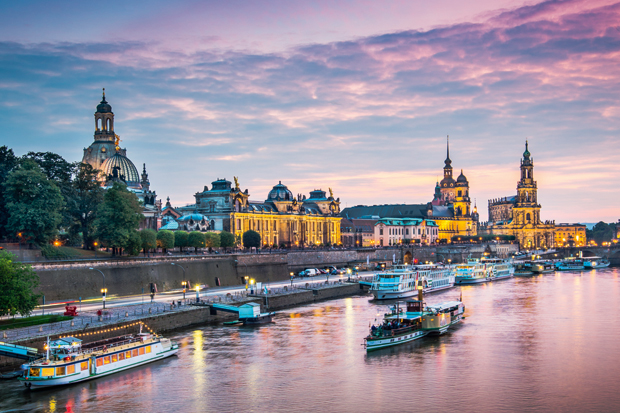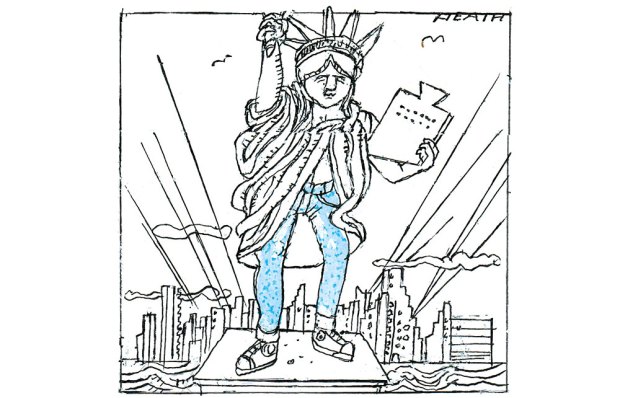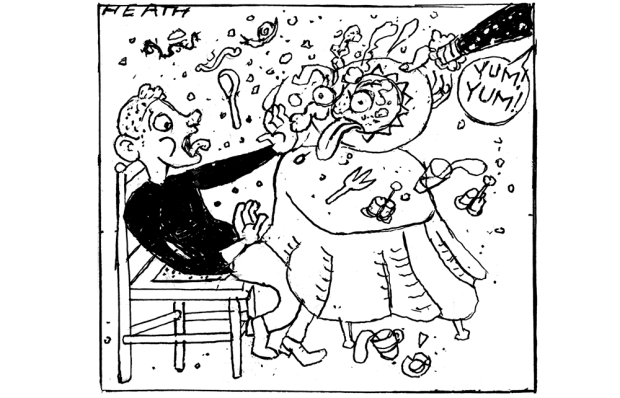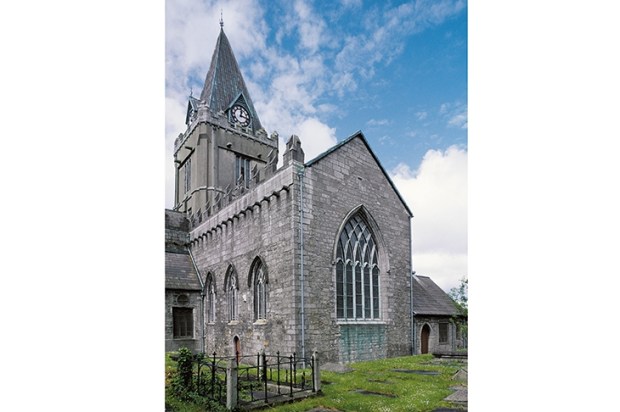Ever since the Berlin Wall came down, I’ve been pottering around eastern Germany, where my father’s family came from, and fled from at the end of the second world war. I thought my interest would fade as my father’s fatherland was absorbed by the Bundesrepublik — but for me, this strange hinterland grows more intriguing with each passing year. Take the historic heartland of Hitler’s Reich, subject it to 45 years of communism and then 25 years of capitalism. What do you end up with? A mad mishmash of past and present, the last century laid bare. Naturally, the former GDR isn’t uniformly pretty (indeed, large swaths of it are spectacularly ugly) but for anyone interested in history, it’s a fascinating place.
Most foreign visitors head for Berlin, and many venture no further. They don’t know what they’re missing. Of course Berlin is a must-see, but like a lot of capitals it’s estranged from the country that surrounds it. While Berlin becomes more international, the surrounding state of Brandenburg remains stubbornly provincial. A local train from the city centre transports you deep into silent countryside, last remnant of the Prussian empire, wiped off the map in 1945. Down long avenues of linden trees are the redundant mansions where its Junker barons used to live. Some are now smart hotels, some are hollow ruins.
Saxony is the success story of eastern Germany. Historically, it was always wealthy. Only communism made it poor. Dresden’s baroque Altstadt hogs most of the tourist traffic. Much of it is actually an artful reconstruction (the RAF left few buildings standing) but no one seems to care. The truth of its past is too painful. Fantasy is always easier, especially here. The house where my father was born is on the green edge of Dresden, near the military airfield. The first time I went there, 20 years ago, the family who live there now were worried I’d come to reclaim it. When I told them I hadn’t, we became friends. When I returned ten years later the children of this family had prospered, but their parents seemed diminished. For the young, reunification was a new beginning. If you were middle-aged, it was the end.
Even within successful Saxony, there are losers as well as winners. Leipzig is booming, but Chemnitz feels like a ghost town. Renamed Karl-Marx-Stadt by the communists, an enormous bust of Marx still stands in the main square, a ‘present’ from the USSR. ‘All power to the five-year plan!’ reads a faded sign on an old wall. The man who showed me round told me he wrote Chemnitz instead of Karl-Marx-Stadt on all his letters throughout the Soviet occupation, even though this futile act of defiance would identify him as a dissident. Out of such little insurrections, revolutions begin.
My father’s family came from Mecklenburg, on the Baltic coast of eastern Germany. The sandy shoreline is beautiful, though it’s normally too cold to swim. The huge white house where my grandfather grew up is still there, a short walk from the beach. Since 1945 it’s been a school. A modest museum in the stables celebrates the workers’ paradise that replaced my grandfather’s Junker dynasty. Sheepishly, the curator told me this display needed updating. I told her not to change a thing.
Got something to add? Join the discussion and comment below.
Get 10 issues for just $10
Subscribe to The Spectator Australia today for the next 10 magazine issues, plus full online access, for just $10.
You might disagree with half of it, but you’ll enjoy reading all of it. Try your first month for free, then just $2 a week for the remainder of your first year.














Comments
Don't miss out
Join the conversation with other Spectator Australia readers. Subscribe to leave a comment.
SUBSCRIBEAlready a subscriber? Log in